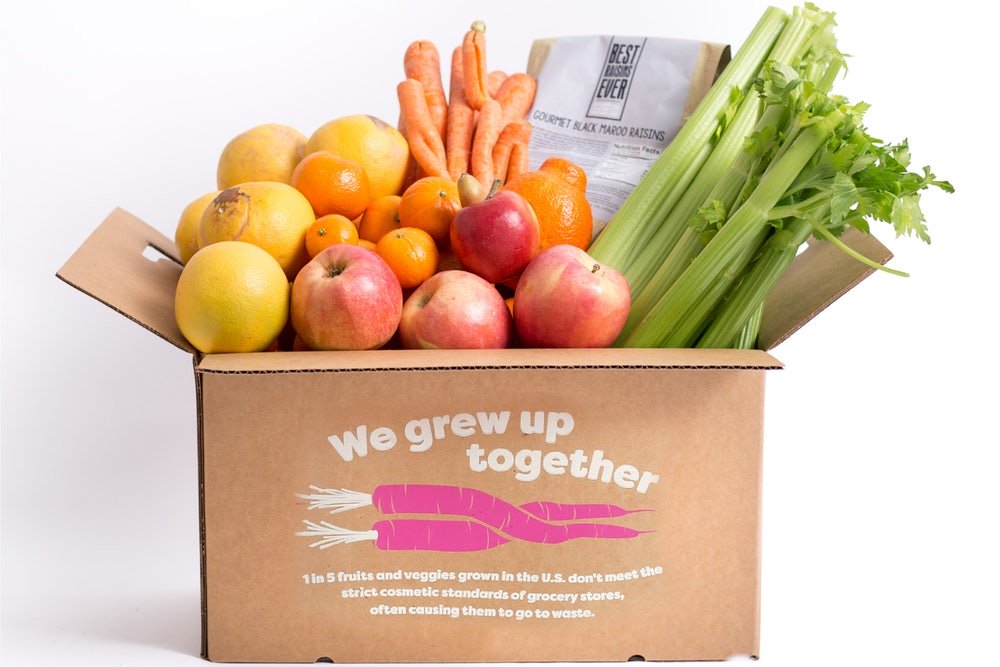“The delivery truck offers the equivalent of a ‘shared ride’ for the food.”
“As for the service that the smaller shops and smaller supermarkets have been offering, eighty percent of respondents have been very impressed with local services.”
.
One of yesterday’s news pieces looked at local food deliveries – and that it can be considered ‘sustainable’ from several angles:
Sustainable, local food deliveries – Vision Group for Sidmouth
A correspondent has got in touch to say:
“I have been reading more stuff recently about how grocery deliveries are more carbon effective than fetching stuff yourself.
“Of course it is not clear cut…”
And googling “grocery deliveries carbon v fetching yourself”, it does indeed seem not so clear cut…
Here are a few findings:
CARBON FOOTPRINT?
From May 2013:
Home grocery delivery sounds like a frill for people too lazy to schlep to the store. But having food delivered can be more environmentally friendly than driving to the store, researchers say. Having groceries delivered can cut carbon dioxide emissions by at least half, compared to driving to the store, according to a new study. That’s because the delivery truck offers the equivalent of a “shared ride” for the food.
Grocery Home Delivery May Be Greener Than Schlepping To The Store : The Salt : NPR
From May 2020:
During the Covid-19 pandemic, more people than ever are buying online to stock their pantries. What kind of carbon footprint is all that home delivery leaving behind?
Is Online Grocery Shopping Better for the Planet? | WIRED
From June 2021:
Amazon says online wins the battle. But factors including refrigeration, packaging and journey type all add complexity to the food delivery model
Is online or in-store food shopping better for the planet? | Analysis & Features | The Grocer
From April 2022 (and the numbers will probably be the same for the UK):
About 15% of Americans have tried online grocery shopping at least once. This number is likely to increase as delivery services from traditional grocery stores, food co-ops, and online retailers become available in more cities and regions across the country. What impact will this have on the environment? Delivery trucks typically get fewer miles to the gallon than cars, but each household making individual trips to the store isn’t efficient or pollution-free either. What if more people bought their groceries online?
What If More People Bought Groceries Online Instead of Driving to a Store? | US EPA
And from August 2022:
Grocery delivery and “trip chaining” are ways to reduce greenhouse gas emissions rather than shopping for yourself, a recent study shows. Scientists at the University of Michigan recently researched carbon footprints associated with how shoppers receive essential grocery items and the e-commerce options retailers developed to meet heightened demand during the early months of the COVID-19 pandemic when most people stayed home under lockdown conditions.
Grocery delivery makes smaller carbon footprint than shopping yourself, study shows – mlive.com
BUY LOCAL: DELIVER LOCAL!

However, what we probably don’t want to do is to help large retailers gain more business at the expense of local providers.
Certainly during lockdown in March 2021, local retailers were offering an excellent delivery service:
Shop local! – Vision Group for Sidmouth
And responding to a VGS survey, people were very supportive:
When it comes to questions around retail, most people are managing to do their own shopping, but about a quarter are getting deliveries from small local shops and there’s been quite a lot of frustration over not being able to shop online. As for the service that the smaller shops and smaller supermarkets have been offering, eighty percent of respondents have been very impressed with local services.
Before and after lockdown in Sidmouth: questionnaire results – Vision Group for Sidmouth
In the meantime, new delivery services have been made very good use of:
In My Back Yard: new East Devon food producers coop – Vision Group for Sidmouth
And new ways to get deliveries from local shop to customers are being explored:
An e-delivery service launches in Exmouth – Vision Group for Sidmouth
Electric cargo bikes are the future – Vision Group for Sidmouth
Finally – and back to the original question:
CARBON FOOTPRINT?
As pointed out at the start of the March 2020 lockdown:
Carbon emissions are really tricky to measure precisely – Vision Group for Sidmouth